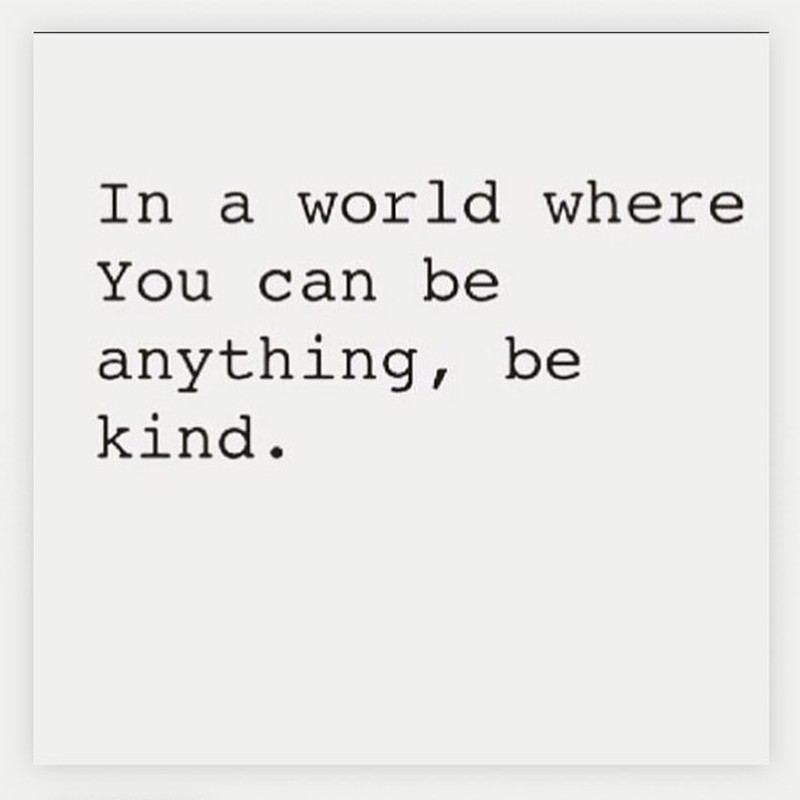Why The World Needs More Kindness
In today’s social media-obsessed world, we’re at risk of being on the receiving end of a negative comment almost every day. It doesn’t matter if you're a member of the royal family, a first-time reality TV contestant, an acclaimed presenter or an ordinary person expressing their views on Twitter – it feels like someone is always waiting to, at the very least, disagree with you or, at the worst, insult you. Whether it’s internet trolling, trials by media or the advent of ‘cancel culture’, the UK appears to be in need of a reality check amid the most tragic of circumstances – especially if we’re to stop it from happening again.
A Problem With Tabloids?
Following Flack’s death, many have called for better regulation, both of online comments and of tabloid reporting. Shortly after news of the television star’s suicide broke, articles from The Sun started to disappear.
“If it’s factual reporting that’s one thing,” argues Suzy Reading, chartered psychologist and author or The Little Book Of Self Care. “But it’s the hounding and intrusion which becomes damaging. If articles are being deleted, that says something. The tabloids [unlike other press sources] don’t hold people to account. It’s the modern-day equivalent of putting people in the stocks for entertainment purposes. We’re all a part of this digital landscape and we have a collective sense of responsibility for our online behaviour. It’s not just about what you say, it’s also what you click on and where you read your news.”
A Problem With The Legal System?
Just 24 hours before taking her own life, Flack learnt that a domestic violence case involving her boyfriend Lewis Burton would be pursued by the courts. Given Burton’s consistent denials that he wished the trial to proceed, many have pointed the finger at the Crown Prosecution Service (CPS) for making a ‘show trial’ out of the case to promote their image on tackling domestic violence. It’s not quite so simple. Recent laws have been brought into force to protect – mostly female – victims of domestic violence which ensure cases proceed to the court irrespective of whether charges are dropped. This is because too many victims are coerced by abusive partners to drop their cases and ignore the problem.
Blogger and author The Secret Barrister explains: “Cases cannot be dropped simply because a complainant doesn’t want their partner prosecuted. Such a system would reward those who successfully coerce victims to withdraw. Sometimes cases must be pursued without the consent of the alleged victim. Nobody, except those involved in a criminal case, knows enough details to comment on whether the CPS was right or wrong to pursue a prosecution.”
That said, legal experts agree not enough is done to monitor the welfare of the accused – especially before they are found guilty by legitimate means – something which Caroline Flack arguably fell victim to herself. In the end, she probably feared she was headed into a trial having already been painted as guilty by a voracious tabloid media. “Rarely is it acknowledged how the strain of the criminal process – whether the allegation is true or not – can affect a person. And this lack of care pervades not only the system, but our society,” adds The Secret Barrister.
A Problem With Kindness?
“The shockwaves of this are enormous and everyone is feeling affected,” admits Suzy. “We have to recognise we each have a moral code and it’s not okay to abuse people. Far from the press holding people to account, we need to start holding the trolls to account, too.”
The issue is complex, however, and treatment of people offline is just as important as online, adds Suzy. “We have to be so careful about jumping to assumptions, judging people… compassion is really the key and it’s so fundamentally misunderstood. It’s about being sympathetic to what people are going through and also actively trying to help them through it. As for ourselves, be mindful about how your online behaviour impacts your own health. Well-nourished people who are living with purpose won’t be rewarded by the dopamine hit of tearing someone down online.”
Finally…
If you know anyone who might be suffering or struggling with their mental health, the Samaritans can be reached for free, at any time by calling 116 123. Alternatively, writing down your thoughts and feelings can help. You can email jo@samaritans.org for a fully anonymous, written response in 24 hours.
DISCLAIMER: We endeavour to always credit the correct original source of every image we use. If you think a credit may be incorrect, please contact us at info@sheerluxe.com.
INSPIRATION CREDITS: Instagram.com/CarolineFlack


